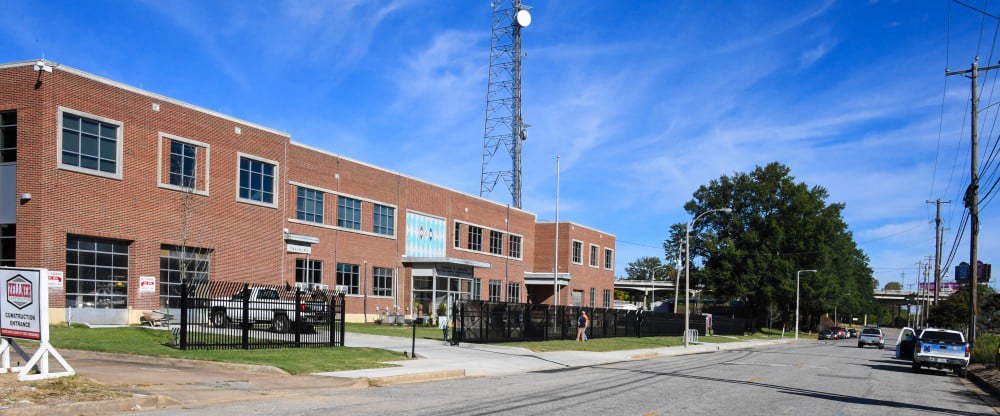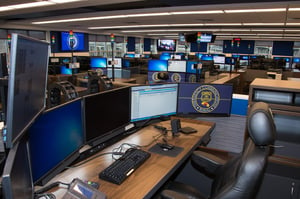Client Success Story: Memphis Police and 911 Communications Enjoy a Remarkable Rebirth
Posted on October 21, 2019 by Morgan Sava
 Challenge
Challenge
With the third-highest homicide rate amongst the 50 largest cities, it’s easy to see that the Memphis Police Department needs every possible resource at its disposal. But as recently as three years ago, its emergency communications capabilities were in shambles. The communications infrastructure was aging and had been neglected for at least a decade. Maintenance was substandard for many of its systems and all were several releases behind in terms of their operating software. The department needed to address computer-aided dispatch (CAD) and uninterruptible power supply (UPS) systems that had reached end of life. Critical servers were out of drive space.
The 911 center was understaffed and plagued by archaic policies with emergency callers waiting for as long as seven minutes before their call was answered. “We were in bad shape,” says Michael Spencer, the police department’s emergency communications administrator. “There was a lot wrong. We were doing things every day just to keep things running.”
Solution
The genesis of the renaissance occurred when the Shelby County Emergency Communications District hired Mission Critical Partners (MCP) to support 911 service delivery.
MCP conducted two 911 center staffing studies. The first staffing study revealed that Memphis needed about 25 personnel dedicated to emergency call-handing compared with the half dozen it had at the time. To cover the gap, call-takers had to work overtime, which only exacerbated the situation because of the increased stress, causing some of the call-takers to leave.
Another solution was to convert new dispatcher candidates to call-takers, a job which is generally less involved and less stressful than dispatching. Doing so created a pool of part-timers, which in turn helped the department achieve a full complement of 25 full-time equivalents.
While staffing enhancements were being made, Spencer and MCP also were tackling the infrastructure problems plaguing the department including updating the air-conditioning system, installing a new mission-critical-grade UPS, and installing rugged laptop computers that wirelessly connected to the department’s CAD system to provide mobile data capabilities to officers in the field.
The department also had two other major infrastructure projects to tackle with a $10 million-dollar budget—replacing or upgrading the CAD system and the need for a facility that would stand up to the rigors of a 911 service-delivery environment. Spencer came up with a plan: upgrade the existing CAD system and use the remaining $9 million to renovate an existing center that housed the department’s backup 911 center.
MCP provided mission-critical technical guidance to help the department create a new state-of-the-art 11,000 square-foot primary 911 center for the department, which was gutted and rebuilt on the building’s second floor, a spot that originally housed the police training academy.
Results

Today, the situation in Memphis has taken a 180-degree turn. “People didn’t think we could fix 911 in Memphis—they were wrong. This wasn’t rocket science—but it took a lot of hard work,” says Spencer. The decisions made resulted in a quantum leap forward for Memphis’s police and 911 communications.
The impact of having a fully staffed 911 center has been tremendous. When the center was woefully understaffed, the average time to answer a call was 90 seconds. Today it is six seconds.
Spencer’s decision to not replace the aging CAD system may be the one with the biggest and longest lasting impact. The upgraded CAD system was a fraction of the cost of replacing the system in its entirety for the same functionality.
They also decided that the department would keep its original primary 911 center operational—so now the city has two primary 911 centers that, because of the geo-diversity built into them, can quickly and seamlessly transfer operations to the other center if one of the centers has become inoperable, uninhabitable, or inaccessible.
“MCP’s subject-matter experts have tremendous experience in 911 operations and have a deep understanding of the technology that is unique to public safety,” Spencer says, “MCP knew what questions to ask. They helped us to see the big picture, what we should strive for.”
Topics: Operations, Staffing


